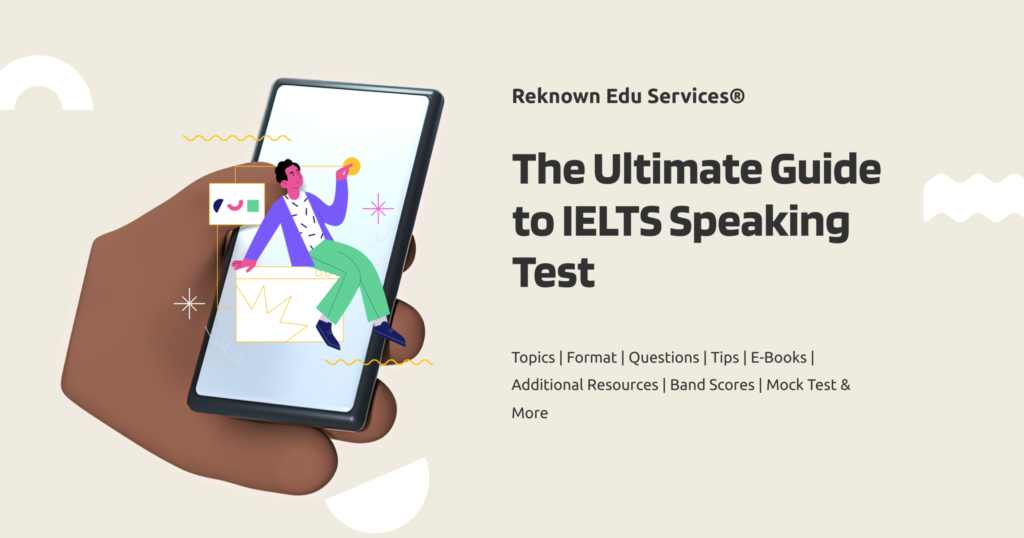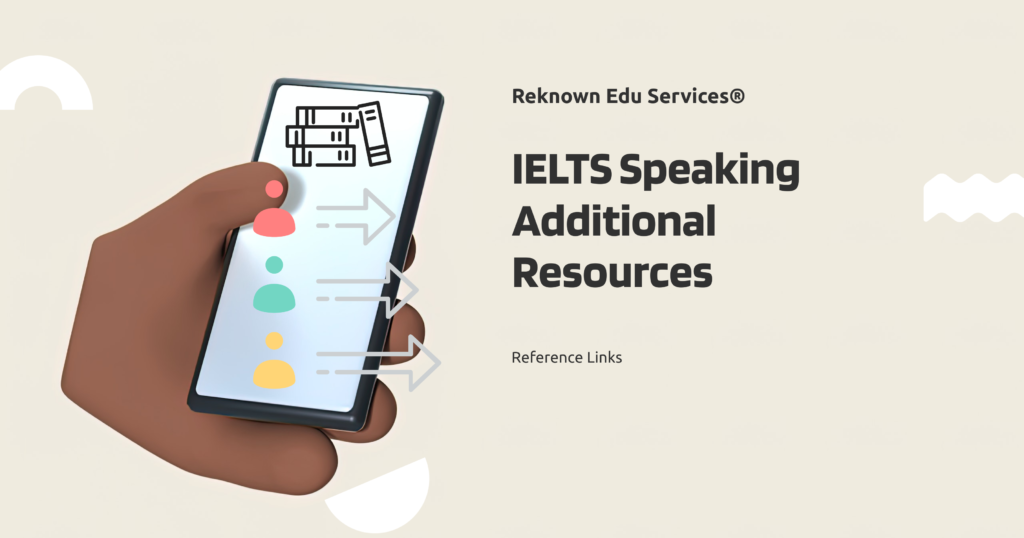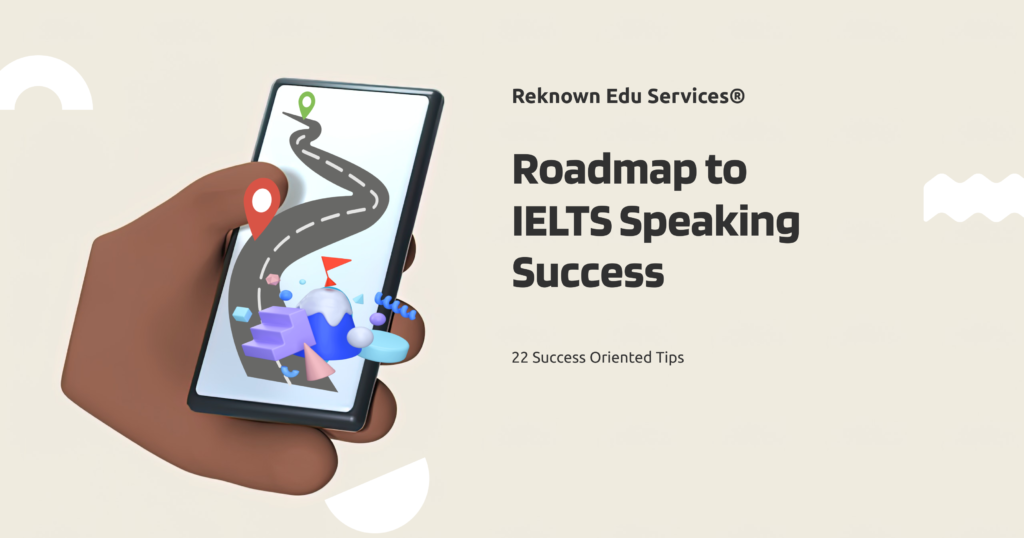
The Ultimate Guide to IELTS Speaking Test 2025: Strategies, Tips, and More
Table of Content
- How to Use this Guide in 2025
- IELTS Speaking Part 1: Introduction and Interview Tips
- IELTS Speaking Part 2: Long Turn Tips
- IELTS Speaking Part 3: Discussion Tips
- IELTS Speaking Vocabulary and Idioms
- Understanding IELTS Speaking Band Descriptors
- How Band Descriptors Influence Your Speaking Score
- Mock Tests and Practice
- Additional Resources
- Recap: Your Roadmap to IELTS Speaking Success
How to Use this Guide in 2025?
This guide has been created to aid your preparation for the IELTS Speaking Test. It will walk through its three components, provide sample questions and answers, offer tips for success, as well as offer resources for practice.
To make the most out of this guide, it is wise to follow these steps:
- Review carefully each section in this guide starting with IELTS Part 1 to Additional Resources.
- Take notes on all sample questions, tips, vocabulary lists and cue cards offered for each section of IELTS Speaking PDF preparation.
- Practice mock tests and use cue cards to hone your speaking abilities before turning your focus back onto IELTS preparation as you would any exam.
By following these steps and dedicating sufficient effort and time for preparation, you can reach your target goal for IELTS Speaking Test success and open doors of opportunities in your future.
IELTS Speaking Part 1: Introduction and Interview Tips
Here are some key strategies for IELTS Speaking Part 1 success.
- Be confident and relaxed: Part 1 is intended to be an easy introduction to the test, so don’t let nerves affect you too much. Take a deep breath, relax, and try speaking naturally as possible.
- Speak Clearly: To achieve maximum marks on the IELTS Speaking Test, clear pronunciation is paramount. Make sure that your words are properly articulated and avoid speaking too quickly.
- Be ready to discuss multiple topics: Your examiner may ask questions related to your background, interests and experiences – make sure you prepare for multiple topics so you’ll be ready to give more details about yourself in detail during an examination session.
- Build up an impressive vocabulary: For IELTS Speaking Part 1, you are expected to utilize common terminology related to familiar topics. Therefore, ensure you possess an expansive range of lexicon that you practice using appropriately in context.
- Request Clarification When Needed: If a question doesn’t make sense or needs repeating, don’t be afraid to seek clarification; rather than providing incorrect answers it is better for all parties involved if more is known about what was asked of you.
By applying these tips and honing your speaking abilities, you can achieve success in IELTS Speaking Part 1. Additionally, this practice will set the foundation for further success throughout the test.
IELTS Speaking Part 2: Long Turn Tips
Here are some essential strategies for success in IELTS Speaking Part 2.
- Use the one-minute preparation time wisely: Use 30 seconds for identifying key points that need to be covered in your response. And, next 30 seconds for brainstorming vocabulary and grammar structures that could enhance it, etc.
- Speak Clearly and Naturally: To have success on the IELTS Speaking Test, clear pronunciation and natural speech are both vitally important. Try speaking at an easy pace while pronouncing all words correctly.
- Link Your Ideas Together: When speaking for two minutes or longer, using linking words and phrases such as “however”, “in addition”, and “finally” to keep the dialogue moving can help keep things flowing smoothly.
- Provide Specific Examples and Explanations: In order to score well in Part 2, it’s crucial that you provide concrete examples and explanations to support your ideas. Use specific information and personal experiences as examples when explaining points.
- Practice under timed conditions: To prepare for the time constraints of Part 2, practice speaking on any given topic for two minutes under timed conditions. This will build endurance and confidence needed to excel in this section.
By following these tips and practicing your speaking abilities, you can ensure success on IELTS Speaking Part 2, setting yourself up for future test-taking success.
IELTS Speaking Part 3: Discussion Tips
Here are a few key IELTS Speaking tips specifically aimed at helping candidates excel in Part 3.
- Make Your Answers More Comprehensive: Part 3 requires more in-depth responses compared to Parts 1 and 2, so aim to provide comprehensive responses by including relevant examples, explanations and supporting evidence in your answers. This shows your ability to generate ideas while contributing meaningful dialogues.
- Use a Diverse Vocabulary, linking words & Phrases: Exhibit your vocabulary resource by including synonyms, idiomatic expressions and academic or specialized jargon. And, Increase the coherence and cohesion by strategically choosing appropriate linking words and phrases. You can try connecting ideas, offering opposing views, providing examples or showing cause-and-effect relationships.
- Express Your Opinions with Justifications: Part three often requires expressing and providing reasons or justifications for your viewpoints. Be sure to state them distinctly while providing supporting arguments from logical thought experiments, personal experiences or pertinent facts and statistics to back them up.
- Engage in a Balanced Discussion: Demonstrate your ability to consider multiple perspectives by exploring both advantages and disadvantages, differing viewpoints or competing ideas related to your topic. Doing this demonstrates your critical thinking abilities as well as ability to analyze complex issues.
By following these tips, you can improve your chances of performing well on IELTS Speaking Part 3 and reaching your desired score in your test.
IELTS Speaking Vocabulary & Idioms
Power-Packed Idioms for IELTS Speaking Success
Idioms are an integral part of language, and can greatly strengthen your speaking abilities for IELTS tests. Here are a few powerful idioms to help you prepare for and pass the IELTS Speaking section of your exam.
- “Break a Leg”: This idiom means “Good luck,” and is often used when wishing someone success at an important performance or event.
- When something is described as being “a piece of cake,” this implies it should be easy and straightforward for them.
- “Bite the Bullet”: This expression refers to approaching difficult or unpleasant situations with courage and resolve.
- “Cost an Arm and a Leg”: Something which costs “an arm and a leg” means it is extremely costly and therefore an extremely valuable investment.
- “Hit the nail on the head”: This phrase refers to accurately or precisely identifying or expressing something. When someone
- “joins or supports a trend or opinion”, they join or support it by joining on with what has become popular or supported as trend.
- “The ball is in your court”: This idiom indicates it is now up to someone else to act or make decisions.
- “Burning the midnight oil”: This phrase refers to working or studying into the night hours.
- “Give someone the benefit of the doubt”: To “give someone the benefit of the doubt” is to believe or trust them even though you may harbor suspicions or uncertainties about them.
- In a nutshell: This idiom refers to summarizing something quickly or briefly.
Building Your IELTS Speaking Vocabulary Arsenal
Building an effective vocabulary arsenal is key for success in the IELTS Speaking Test. Here is a list you can start with:
Word No | Word | Part of Speech | Definition | Example Sentence |
1 | Analyze | Verb | Examine methodically and in detail. | The researcher will analyze the data to draw conclusions. |
2 | Comprehend | Verb | Grasp mentally; understand. | It took a while for her to comprehend the complexity of the topic. |
3 | Elaborate | Adjective | Involving many carefully arranged parts. | The artist created an elaborate design for the exhibition. |
4 | Implement | Verb | Put into effect; execute. | The government plans to implement new policies for environmental conservation. |
5 | Integrate | Verb | Combine one thing with another to form a whole. | The company aims to integrate sustainable practices into its operations. |
6 | Justify | Verb | Show or prove to be right or reasonable. | The student had to justify his argument with evidence. |
7 | Coherent | Adjective | Logical and consistent. | The presentation was clear and coherent, making it easy to follow. |
8 | Derive | Verb | Obtain something from a specified source. | The chef derived inspiration for the new dish from traditional recipes. |
9 | Deviate | Verb | Depart from an established course. | The project had to deviate from the original plan due to unforeseen circumstances. |
10 | Equate | Verb | Consider to be the same as or equivalent to. | Some people mistakenly equate success with wealth. |
11 | Constitute | Verb | Form or compose. | The diverse elements constitute a rich cultural heritage. |
12 | Illuminate | Verb | Light up; provide light. | The lanterns helped illuminate the path in the dark. |
13 | Attribute | Noun | A quality or feature regarded as a characteristic or inherent part. | Patience is a valuable attribute in challenging situations. |
14 | Infer | Verb | Deduce or conclude information from evidence and reasoning. | From his facial expression, she could infer that he was pleased. |
15 | Convey | Verb | Communicate or make known. | The speaker tried to convey the importance of environmental conservation. |
16 | Advocate | Noun/Verb | A person who publicly supports or recommends a particular cause or policy. | She is known for being an advocate of gender equality. |
17 | Delineate | Verb | Describe or portray precisely. | The artist carefully delineated the features of the landscape. |
18 | Elicit | Verb | Evoke or draw out a response or reaction. | The teacher used questions to elicit thoughtful responses from the students. |
19 | Coalesce | Verb | Come together and form one mass or whole. | The diverse cultures in the city coalesce to create a unique atmosphere. |
20 | Constrain | Verb | Severely restrict the scope or activity of. | Budget constraints limited the project’s scope. |
Understanding IELTS Speaking Band Descriptors
Fluency and Coherence:
- This criterion assesses a candidate’s ability to speak clearly, with no hesitations, pauses or incoherent ideas connecting their thoughts coherently. It takes into account factors like hesitations, pauses and their ability to connect ideas coherently.
Lexical Resource:
- Lexical Resource measures the candidate’s vocabulary range and accuracy by looking at how often specific words were used, their appropriate usage in context, as well as their control of word selection/collocations.
Grammatical Range and Accuracy:
- This criterion assesses a candidate’s grammatical skills by assessing their ability to employ a wide array of grammatical structures accurately, demonstrate control over tenses and sentence structures as well as correctly order words in sentences.
Pronunciation:
- Pronunciation testing evaluates an applicant’s ability to produce clear and understandable speech, including individual sounds pronunciation, stress placement, intonation patterns and overall clarity of speech.
Criterion are scored from 0-9 with 9 being the maximum possible score. Band descriptors provide information on performance at each band level to allow examiners to assess candidates’ speaking skills and assign an appropriate score.
How Band Descriptors Influence your Speaking Scores
Band 7:
At Band 7, students demonstrate an advanced command of English and can confidently navigate various subjects and topics. Here are the main characteristics:
- Fluency and Coherence: You speak clearly and fluently with only occasional hesitations; your ideas are coherently structured.
- Vocabulary choices contribute to cohesion in your speech; you possess an impressive lexical resource that you use accurately; this ensures coherence for the best speech performance possible.
- Grammatical Range and Accuracy: You make only minor grammatical mistakes and use an array of grammatical structures with few errors; your sentences are typically accurate and coherent.
- Pronunciation: Your pronunciation is clear and understandable, with occasional non-native features that do not interfere with comprehension.
Band 8:
At Band 8, you demonstrate a high level of English proficiency by displaying flexibility and precision in your speech. Here are its characteristics:
- Fluency and Coherence: You speak easily and naturally without strain or apparent effort, connecting ideas seamlessly, demonstrating excellent coherence, and creating an impression of excellence when speaking aloud.
- Lexical Resource: You employ an impressive range of vocabulary, such as idiomatic expressions and technical terminology, that adds depth and impact to your speech. Your choice of words helps enhance its impact.
- Grammatical Range and Accuracy: You utilize complex grammatical structures accurately. Errors are uncommon and do not impede communication.
- Pronunciation: Your pronunciation is clear and native-like, with subtle nuances and intonation patterns that demonstrate a mastery of phonetics. Your speech is highly intelligible and displays your excellent command of phonetics.
Band 9:
At Band 9, your language skills demonstrate exceptional command with fluency, accuracy, and sophistication being showcased through fluent expression, accuracy in translations and sophisticated discourse patterns. Key features:
- Fluency and Coherence: Your speech flows smoothly with natural ease; ideas are expressed coherently with precise connections being made throughout.
- Lexical Resource: Your vocabulary is expansive and precise, enabling you to convey subtle shades of meaning effectively through language. Furthermore, your use of idiomatic expressions and collocations has proven successful.
- Grammatical Range and Accuracy: You demonstrate mastery of complex grammatical structures, using them accurately and idiomatically without error or slip ups. Errors are virtually nonexistent.
- Pronunciation: Your pronunciation is absolutely impeccable, closely matching that of native speakers. You demonstrate impressive control over intonation, stress and rhythm.
Mock Tests & Practice
- Mock tests provide you with an opportunity to familiarize yourself with the structure and format of the IELTS Speaking exam, including sample questions and timing guidelines.
- By practicing these sections before exam day arrives, mock tests help prepare you to meet what to expect on test day.
- Mock tests typically feature feedback from instructors or evaluators that provides valuable insight into your performance as well as areas where improvement may be needed, such as vocabulary usage, grammar usage, pronunciation accuracy or coherence issues.
- This feedback also enables you to quickly identify specific weaknesses and work on them effectively.
Testimonials
Additional Resources
- British Council: The British Council offers free online resources such as practice tests, videos, and tips for taking the IELTS speaking test.
- TED Talks: Watching TED Talks can help develop both listening and speaking skills. Try imitating the speakers’ pronunciation, intonation and speaking styles as inspiration.
- Cambridge English: The official Cambridge English website provides free sample tests and resources on their official website.
- HelloTalk App: This is a language exchange app where native English speakers will provide correction for your sentences – making this very helpful in practicing speaking.

Study Guides / PDF’s for Indian Students
At Reknown Edu Services, we understand IELTS speaking Preparation requires a lot of resources. That is exactly we have built this extensive list of ebooks & resources for you.
IELTS Part 1 & 3 Resources:
Ultimate IELTS Speaking Opinion Based Questions
Ultimate IELTS Speaking Comparison questions
Ultimate IELTS Speaking Advantages/Disadvantages-based questions
IELTS Part 2 Resources:
Ultimate IELTS Speaking Descriptive-based Questions
Ultimate IELTS Speaking Narrative Based Questions
Ultimate IELTS Speaking Comparison Based Questions
Bundle:

Recap
- Establish Clear Goals: Establish your band score goal and develop specific, measurable, attainable, relevant and time-bound (SMART) goals for IELTS speaking preparation.
Accumulate Resources: Gather a variety of resources including free online materials, practice tests and e-books from Reknownedu.com that offer more in-depth preparation.
Focus on Fluency and Pronunciation: Focus on speaking fluently without too much hesitation or interruption from internal monologue.
Increase Your Vocabulary: Build up your vocabulary through reading widely and making note of useful phrases and expressions.
Assess Coherence; Utilise Connecting Words
To increase coherence within your thoughts and create greater unity of thought. Use linking words as bridges between ideas.Take Mock Tests: Practice your exam environment by taking full-length mock tests to gain familiarity with time management and test format – We can help you with that (Contact us).
Stay Positive and Confident: Maintain a positive mindset.
Why Reknown Edu Services® Stands Out in Bangalore
With over a decade of experience in helping students achieve our dreams of studying abroad, Reknown Edu Services® is a trusted choice for personalized and professional guidance. Our dedicated team in Bangalore understands the unique requirements of students from Karnataka and the challenges they face while preparing for overseas education.
📍 Visit Us at: Indiranagar, Bangalore
📞 Call / WhatsApp Us at: +91-9035366635
✉️ Email Us at: info@reknownedu.com

12 Responses
I am afraid of speaking
Hello Sharon,
1. You need to practice regularly in front of a mirror.
2. You need to trust, that no one is perfect. Therefore, you can do it too.
3. You need to start talking to strangers, without the fear of being judged
4. You need to avoid answering short answers, instead just give lengthy answers even if you find it awkward. 🙂
If you want personalised training with feedback, contact us on whatsapp. We will help you!
I want IELTS speaking improvement classes. I have already given the exam twice and have scored only 6.5 I want to score more than 7.5.
Hello Brijesh,
We can immediately arrange Speaking classes. Let us know if you want offline or online. Our office is in Indiranagar, Bangalore. Contact us on Whatsapp.
This is a good post
Hello Shravanthi,
We are glad that you found this post useful.
Can I just join SPeaking class for offline set up at the academy?
Hello pavithra,
Yes, why dont you write us on whatsapp to discuss more about the timings, fee and other details.
Ebooks are worth it
Hello Charan,
Thank you for your kind words. It would be great if you could give reviews on the product page you bought the ebook from. 🙂
Thanks for the suggestion! I bought the speaking bundle last week. I must say, quite diverse topics and loved the vocabulary range.
Hello Seema,
We are glad you found it useful.